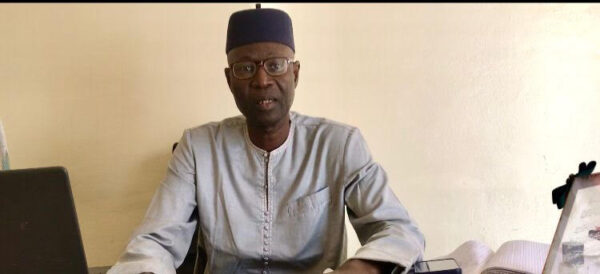By Professor Amath Ndiaye, FASEG-UCAD.
The BCEAO is preparing to take a historic step with the launch of the e-CFA, a fully digital version of the CFA franc. No more banknotes and coins: tomorrow, everyone will be able to use their currency directly via their phone, a card, or an application, securely.
An official and secure currency
Unlike cryptocurrencies like Bitcoin, the e-CFA will not be a private currency. It is an official currency, guaranteed by the Central Bank of West African States. Its value is the same as that of the current CFA franc. Every citizen, even without a bank account, will be able to use it.
The goal is clear: to make payments faster, less expensive, accessible everywhere and at all times.
More than just modernization: a question of sovereignty
Why this change? Because money evolves. Central banks around the world are launching their digital currencies to not leave the field open to cryptocurrencies or large private fintech companies.
With the e-CFA, the BCEAO retains control. It is a tool to preserve our monetary sovereignty and not depend on foreign currencies or international platforms.
What are the consequences for fintech?
This is where the debate heats up. If the e-CFA functions as a simple “digital cash,” fintech companies (Orange Money and Wave) will be able to continue offering complementary services. But if tomorrow the currency becomes “programmable” (for example, limited in time or usable only for certain purchases), the central bank will regain most of the ground and fintech companies will have to reinvent themselves.
This does not mean they will disappear. But they will have to innovate in other areas: financial inclusion in rural areas, green finance, cross-border services with the AfCFTA, or the intelligent use of data.
For us, citizens, the benefits are immense:
- no more banknotes manufactured in France,
- fast and cheap money transfers,
- enhanced security against fraud and money laundering,
- and above all, a currency that circulates faster, even without the Internet thanks to the planned new technologies.
In summary, the e-CFA is not just a technical innovation, it is a silent revolution. It prepares West Africa for the digital future, while consolidating its monetary sovereignty.
And for the detractors who still repeat that “our banknotes are manufactured in France,” the debate will soon be closed: in a few years, we may not use any banknotes at all. The future CFA, 100% digital, will indeed be manufactured here, in Africa.
About Prof. Amath Ndiaye, FASEG – UCAD
Prof. Amath Ndiaye is a prominent Senegalese economist, holding a Doctorate in Economics from Cheikh Anta Diop University in Dakar (2001) and a Doctorate in Development Economics from the University of Grenoble, France (1987). Since 1987, he has been teaching at the Faculty of Economics and Management Sciences at Cheikh Anta Diop University in Dakar. A recognized expert, he has collaborated with prestigious institutions such as the African Development Bank, the World Bank, and the IMF, specializing in exchange rates, economic growth, and institutional development. He was an expert member of the steering committee of the African Union Commission for the Creation of the African Central Bank. Prof. Ndiaye is the author of numerous influential publications, particularly on exchange rate regimes and economic growth in West Africa. Fluent in Wolof, French, and English.


